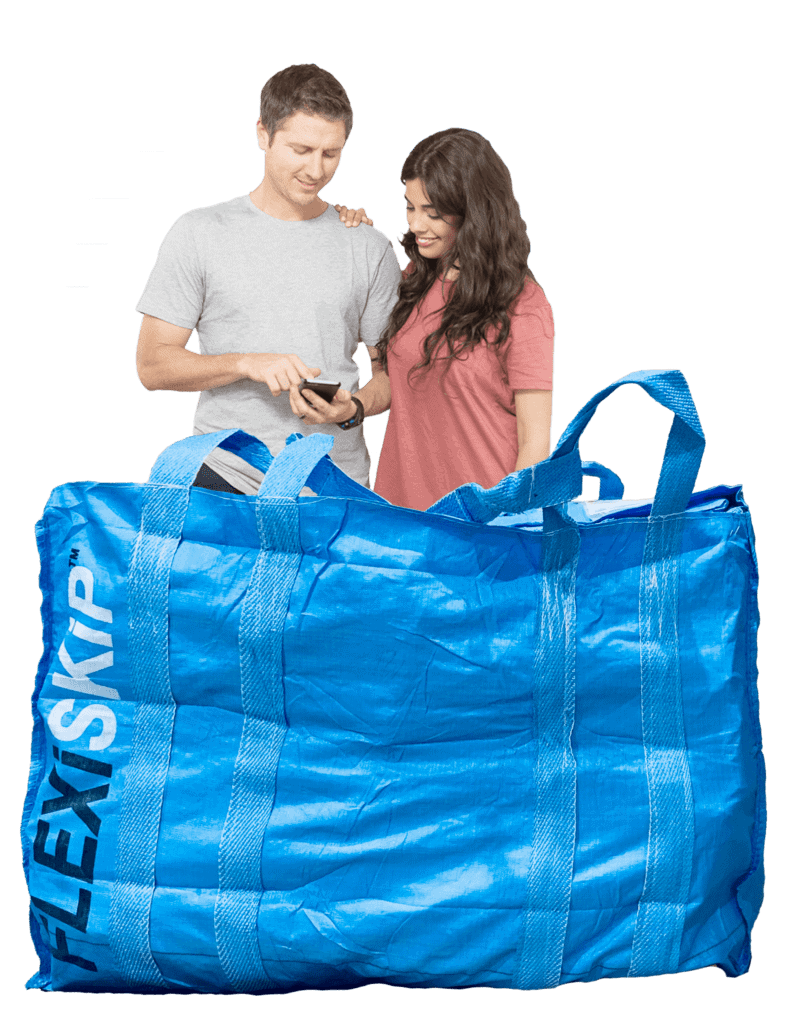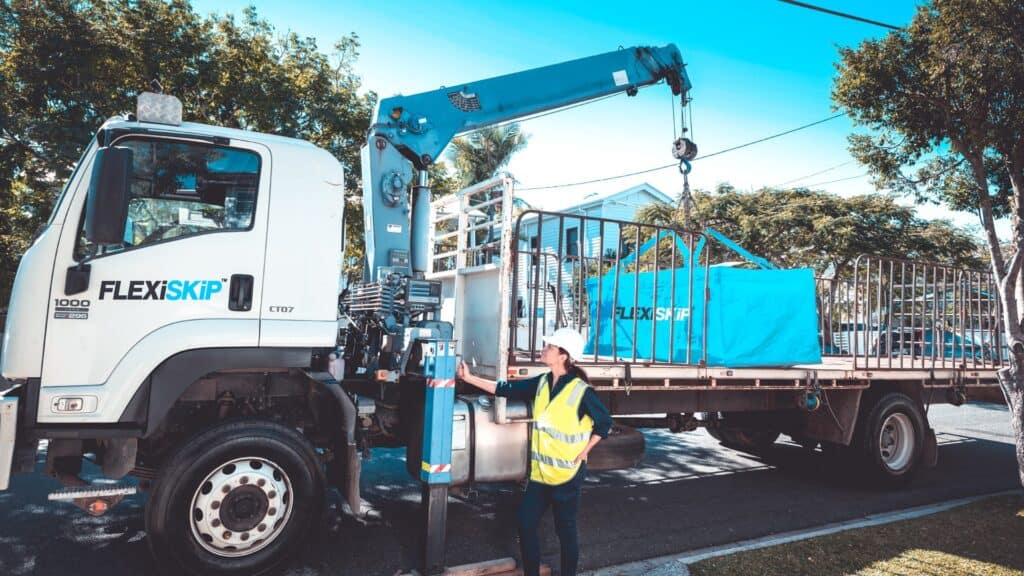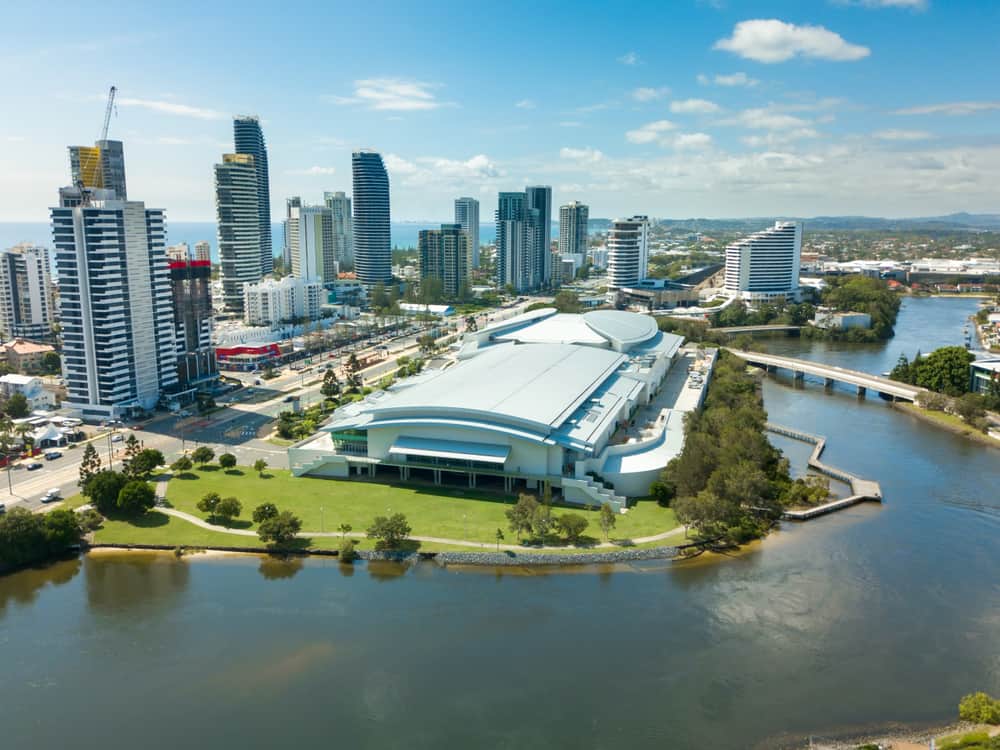A quiet revolution is taking place on the streets of suburbia.
A groundswell of support is challenging and changing how household waste is managed, starting with the traditional model of kerbside collections.
Council-operated bulk rubbish collections can resemble an unsightly wasteland of discarded household goods stacked high and picked through by opportunistic pilferers and the odd nosy neighbour, the detritus strewn across footpaths and roads.
Exposed to the elements and presenting a potential health and safety risk to local residents and motorists, the sodden waste is thrown into the back of a truck and dumped at the nearest landfill site.
Queensland tech start-up Handel Group is leading this revolution with its smarter, more sustainable approach to waste management.
STREETWISE APPROACH TO SUSTAINABILITY
Founder and Managing Director Brett George says Handel Group’s socially and environmentally responsible on-demand waste removal and management system not only keeps streets clean but diverts rubbish from landfill in huge quantities.
“In 2022, the idea that the best we can do is pile up rubbish on the kerbside once a year is pretty archaic and then to send that waste to landfill is just outdated,” Mr George says.
After successfully bidding and presenting a new model for the City of Gold Coast (City)bulky kerbside clean up program, a 12 month trial contract was awarded, for half of the City divisions in line with eligibility criteria.
Over the initial 12 months, Handel Group diverted an additional 52 per cent of collected waste from landfill and received a staggering 92% satisfaction rating (today own rating is at 98.6) from residents.
It was granted a two-year extension from January 2022 to service eligible customers across the entire Gold Coast local government area and has already increased landfill diversion to 68 per cent.
As Handel continues to improve and innovate, it plans to launch additional products to enhance recycling-at-the-home with the aim to divert 85 per cent of domestic waste from landfill by December 2023.
The company now has its sights set on bringing its successful and sustainable on-demand service to other local government authorities.
HOW IT WORKS: GOLD COAST CASE STUDY
The City of Gold Coast facilitates one on-demand bulky kerbside collection service for eligible households annually. Rather than the historical method of a scheduled collection date, residents have the freedom to choose a timeframe that suits them.
Through the City’s partnership with Handel Group, residents follow a very simple process to order a FLEXiSKiP which is delivered straight to their home.
Each FLEXiSKiP is a heavy-duty, three cubic metre skip bag with a one-tonne capacity, big enough to fit couches, mattresses and other bulky household items.
Residents set the bag within four metres of their kerb, have a 30-day window to fill it with household waste then scan a QR code on the bag to arrange pick-up through a network of local businesses and Supply Partners.

LOFTY LANDFILL DIVERSION TARGETS
Mr George says the innovative start-up has the ambitious goal of achieving 100 per cent landfill diversion by 2030 by changing the perceptions and practices of waste management.
“Traditional waste management fails the planet and it fails communities,” Mr George says.
“Historically, it’s been cheaper and easier to take things to landfill but the world is changing and waste management needs to change too by recycling, upcycling and reusing what people throw away.
“As the technology gets better, landfill diversion becomes more and more cost-effective, making sustainable waste removal fast and affordable.”
TECHNOLOGY DRIVING CHANGE
While waste management is its key service, Handel Group is a technology company committed to tackling the waste industry from the bottom up.
Data collected from customers helps direct waste to operators and services that can recycle or repurpose the FLEXiSKiP’s contents.
“We’re all about improving how we use technology, data and logistics to facilitate the segregation of household waste commodities,” Mr George says.
“We use our technology to ensure the waste we collect is taken to the most beneficial outlet for recycling.”
That technology includes a smartphone app where customers who order a FLEXiSKiP – whether for a council-operated bulk rubbish collection or for business or domestic use – can nominate the type of waste it will contain.
When they scan the QR code to organise removal, they also upload a photo of its contents which is analysed by Handel Group before coordinating collection.
“We inspect the photo and engage a suitable supplier to collect that skip and take it to one of our recycling partners.
“While this is still a visual process, we’re machine-learning and evolving with a view to using AI (artificial intelligence) to identify contents.
“We track and report that data – what is going in our FLEXiSKiPs and how much of that we divert from landfill – and councils can use and share their data.”
DRIVING LOCAL EFFICIENCIES

Handel Group’s network of local drivers also delivers environmental efficiencies while driving down costs.
Using a contractor model similar to rideshare services, Handel Group engages local truck drivers to collect FLEXiSKiPs in their area.
“By championing local drivers, money stays in the community and we can reduce mileage, keeping our environmental footprint low,” Mr George says.
“Drivers have the opportunity to be their own boss – they bring their truck, we train and onboard them, make sure their vehicle is compliant and then we fill their schedules.
“This model enables us to offer a frictionless on-demand service that is customer-centric, flexible and agile.”
BUILDING A NETWORK OF LIKE-MINDED PARTNERS
Handel Group is building a bespoke network of recycling facilities and recycling services to divert FLEXiSKiP contents from landfill.
In addition to large-scale recycling, the group partners with profit-for-purpose organisations such as World’s Biggest Garage Sale and many charities to reuse and repurpose dormant household goods.
“Through our platform, a reusable fridge goes to World’s Biggest Garage Sale to be re-gassed, refurbished and re-sold, creating employment opportunities and benefitting the wider community, whilst a retired fridge, usually destined to be crushed and off to landfill will be routed to a scrap yard for recycling or brokered through our platform for community recycling opportunities. Our commingled skips head to our recycling partners who are committed to stripping out every commodity to increase our diversion metric for clients,” Mr George explains.
FUTURE FOCUSED
Core to achieving its landfill diversion target is empowering customers to segregate their waste to better facilitate recycling.
Mr George says many households still send dormant re-sellable goods, batteries, e-waste and soft plastics to landfill because they are either unaware they can be recycled or because collection and disposal are confusing or labour intensive.
“We want to drive behavioural change at the source to make it easy for our customers to divert their waste from landfill,” he says.
“We’re doing that by providing different receptacles for waste, improving our technology and making recycling and upcycling easy and fun to provide a sustainable ‘last mile’ supply chain solution to residents, LGAs and government schemes.
“We see ourselves as an innovator in this space, not just by diverting what we collect from landfill but by helping people reduce the waste that comes from their households in the first place.”

